Indigenous Governance Database
blood quantum
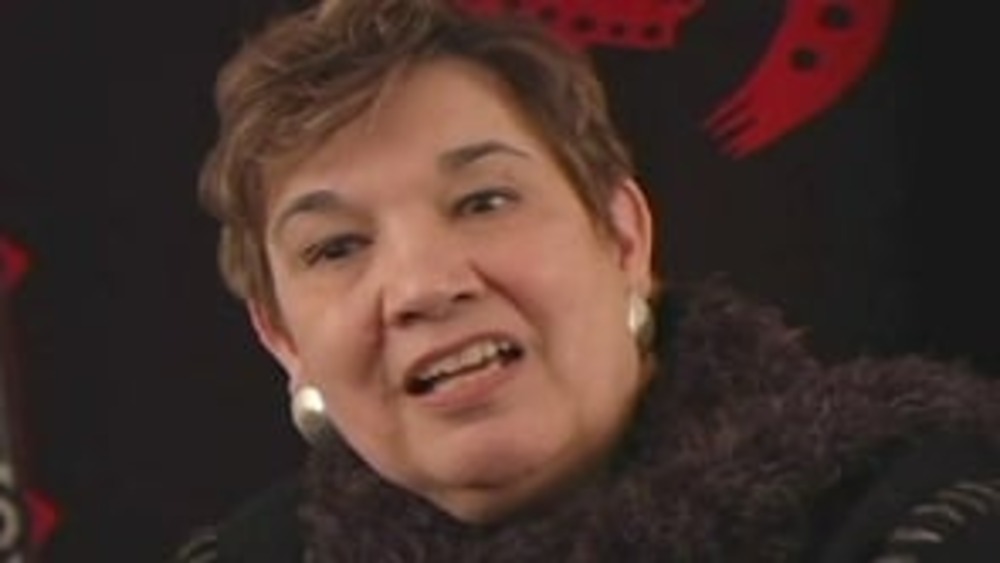
Great Tribal Leaders of Modern Times: Jayne Fawcett
Produced by the Institute for Tribal Government at Portland State University in 2004, the landmark “Great Tribal Leaders of Modern Times” interview series presents the oral histories of contemporary leaders who have played instrumental roles in Native nations' struggles for sovereignty, self-…
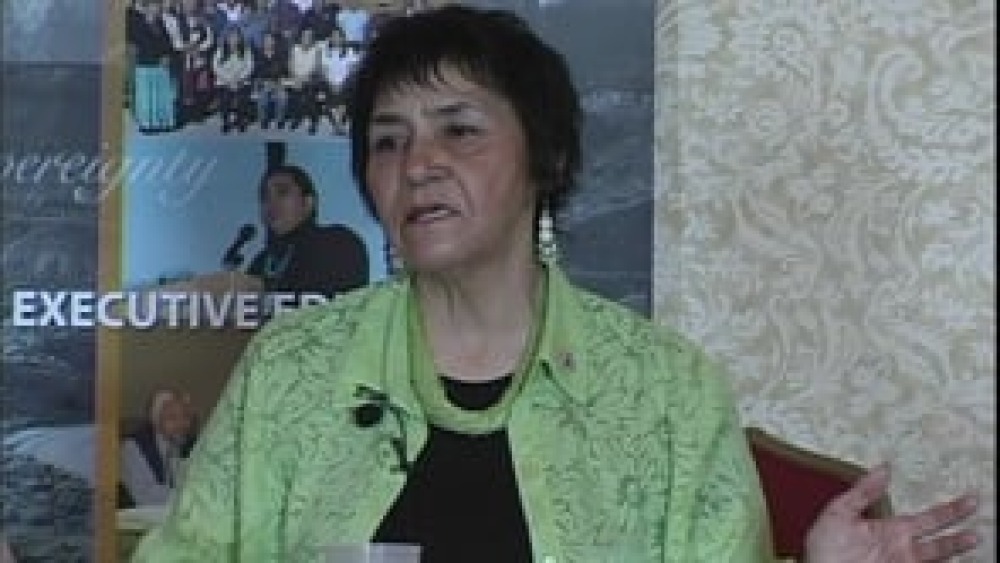
Erma Vizenor: Engaging the Nation's Citizens and Effecting Change: The White Earth Nation Story
White Earth Nation Chairwoman Erma Vizenor discusses some of the historical factors that eventually compelled her and her nation to undertake constitutional reform, and the issues her nation has encountered as they work to ratify a new constitution and governance system.
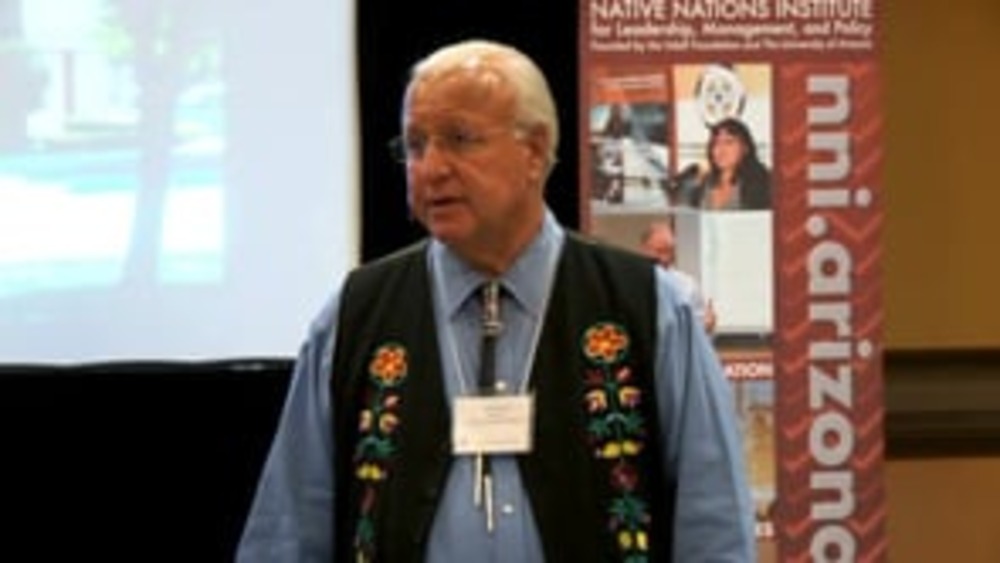
John "Rocky" Barrett: A Sovereignty "Audit": A History of Citizen Potawatomi Nation Governance
Citizen Potawatomi Nation Chairman John "Rocky" Barrett shares the history of the Citizen Potawatomi Nation and discusses its 40-year effort to strengthen its governance system in order to achieve its goals.
Taylor Keen: The Disenfranchisement of the Cherokee Freedmen: Assertion or Abuse of Sovereignty?
Taylor Keen (Cherokee), a former member of the Cherokee Nation Council, discusses the stand he took against his nation's recent decision to disenfranchise the Cherokee Freedman. He offers a convincing argument against the move, explaining that taking away the citizenship rights of the Freedmen…
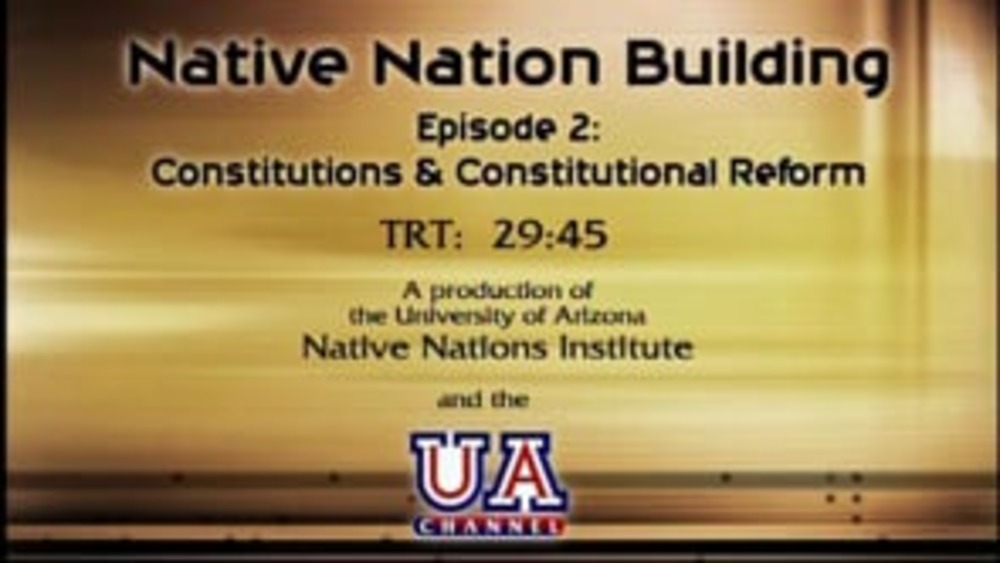
Native Nation Building TV: "Constitutions and Constitutional Reform"
Guests Joseph P. Kalt and Sophie Pierre explore the evidence that strong Native nations require strong foundations, which necessarily require the development of effective, internally created constitutions (whether written or unwritten). It examines the impacts a constitution has on the people it…
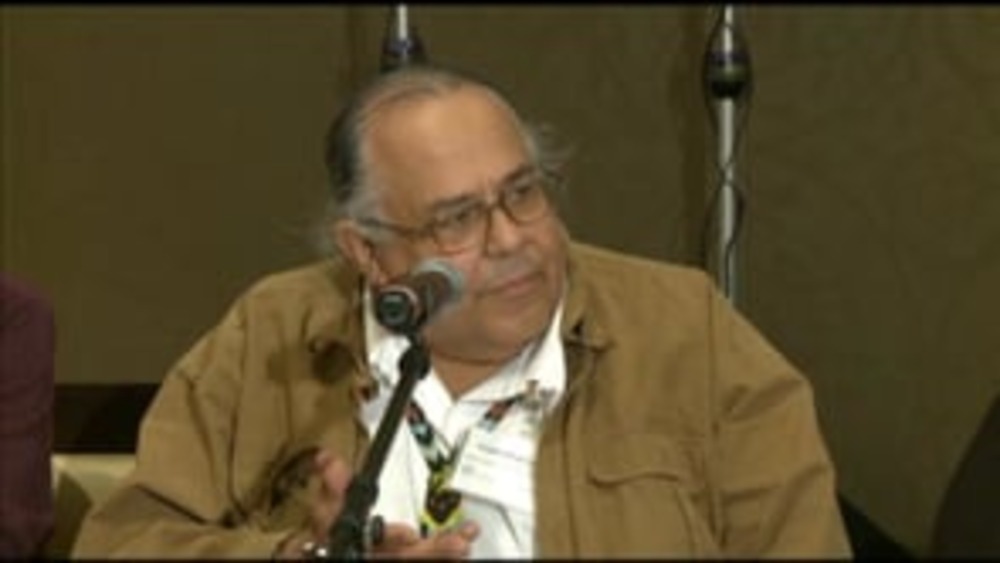
Constitutional Reform: A Wrap-Up Discussion (Q&A)
NNI "Tribal Constitutions" seminar presenters, panelists and participants Robert Breaker, Julia Coates, Frank Ettawageshik, Miriam Jorgensen, Gwen Phillips, Ian Record, Melissa L. Tatum and Joan Timeche field questions from the audience about separations of powers, citizenship, blood quantum and…
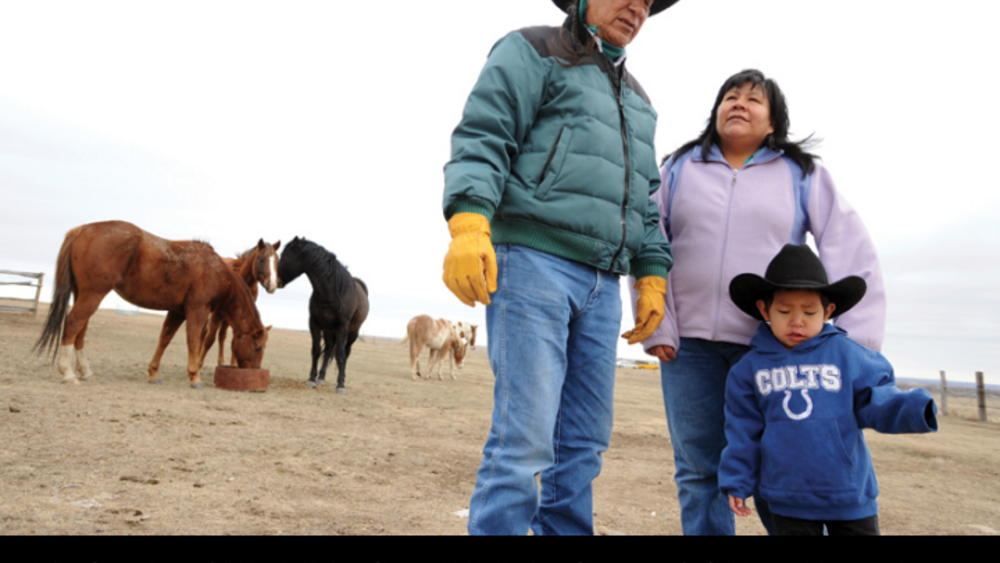
Blood Quantum: A complicated system that determines tribal membership threatens the future of American Indians
Ryan Padraza Comes Last is a full-blooded Indian, Sioux and Cheyenne on his father's side and Assiniboine on his mother's. He will soon receive his Lakota name: "A Rope." (Comes Last raises rodeo horses and always has a rope in his right hand. He likes to call Ryan his "right-hand man.") But…
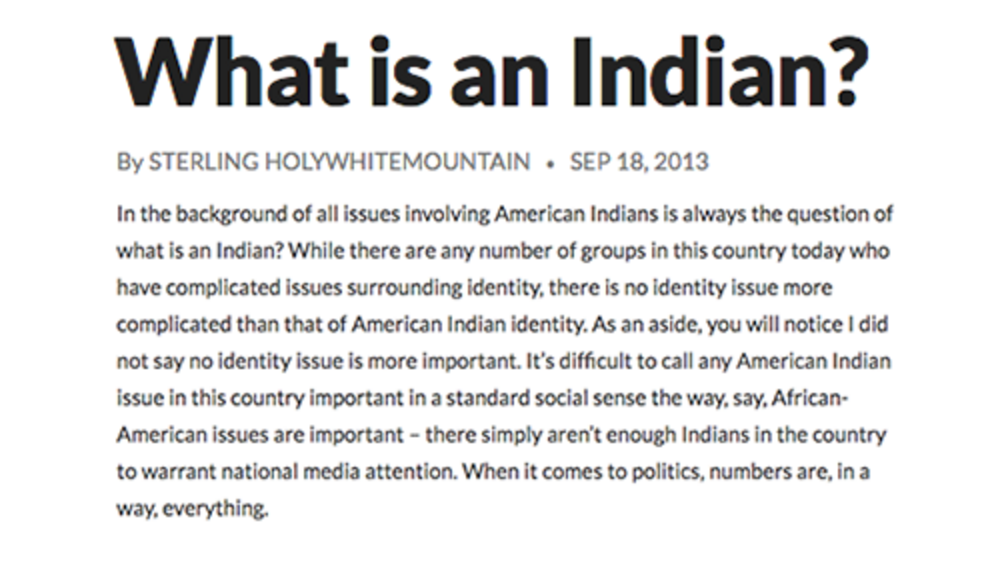
What is an Indian?
In the background of all issues involving American Indians is always the question of what is an Indian? While there are any number of groups in this country today who have complicated issues surrounding identity, there is no identity issue more complicated than that of American Indian identity. As…
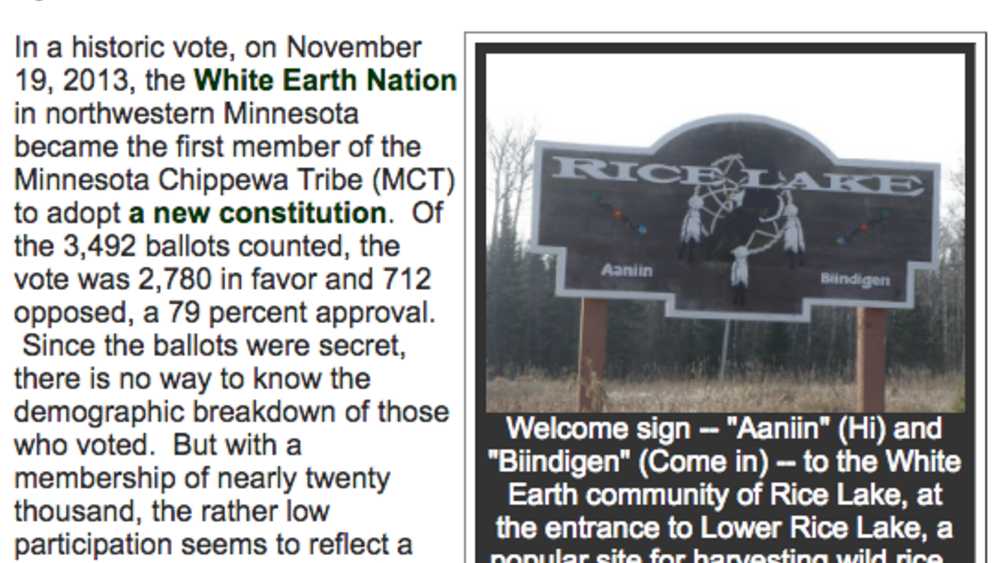
White Earth Nation Adopts New Constitution
In a historic vote, on November 19, 2013, the White Earth Nation in northwestern Minnesota became the first member of the Minnesota Chippewa Tribe (MCT) to adopt a new constitution. Of the 3,492 ballots counted, the vote was 2,780 in favor and 712 opposed, a 79 percent approval. Since the ballots…

Two Possible Paths Forward for Native Disenrollees and the Federal Government?
Disenrollment, a seemingly innocuous term when used outside Indian country, has become a loaded word that rivals, if it does not surpass, “termination” as a concept that invokes fear and trembling in those natives who suffer its consequences. While the federal policy of termination in the 1950s was…

Northern Ute Tribal Enrollment May Rise, Pending Election Could Lower Blood Quantum
A tribal nation with what could be North America’s strictest enrollment criteria may soon decide on more flexible rules that might, if adopted, increase the tribe’s current 3,000-plus membership. A pending election could lower the 5/8 Ute Indian blood degree requirement for membership in the Ute…
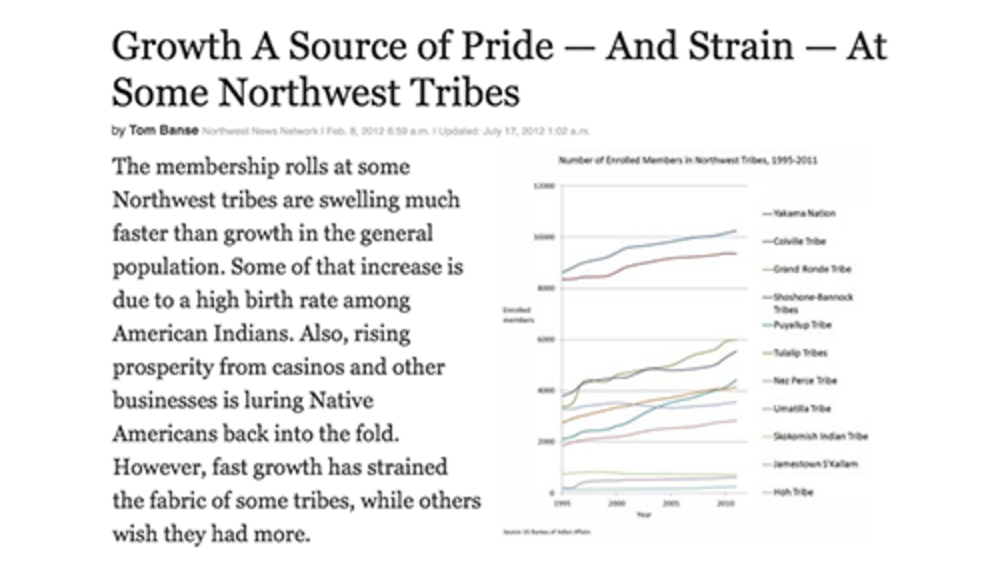
Growth a Source of Pride - And Strain - At Some Northwest Tribes
The membership rolls at some Northwest tribes are swelling much faster than growth in the general population. Some of that increase is due to a high birth rate among American Indians. Also, rising prosperity from casinos and other businesses is luring Native Americans back into the fold. However,…
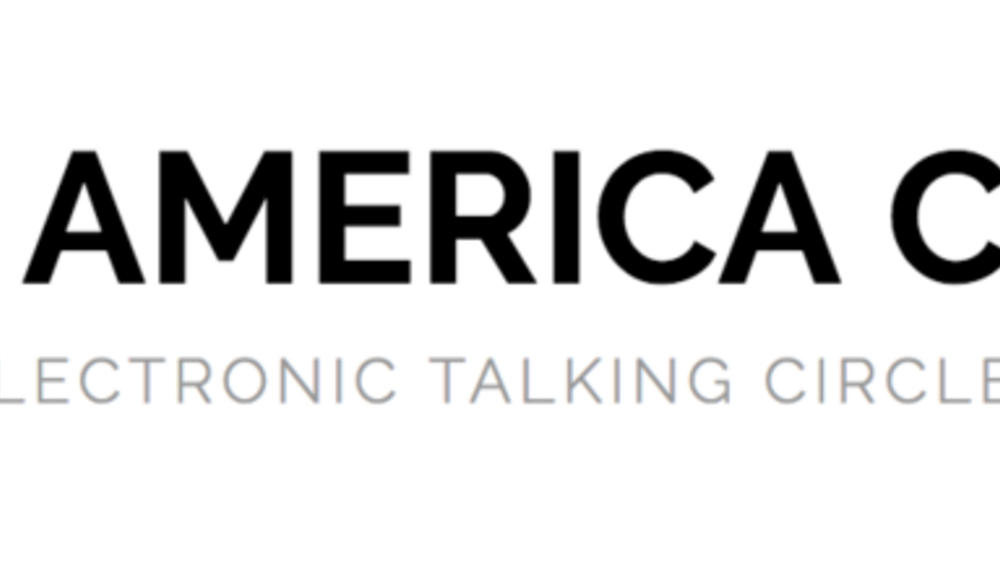
Tribal Enrollment And Blood Quantum
Every tribe has its own rules for membership. Some tribes include lineal descent — proof that you descend from a recognized tribal member — while others have a blood quantum requirement that requires members possess a certain percentage of tribal blood. On White Earth, researchers found that the…
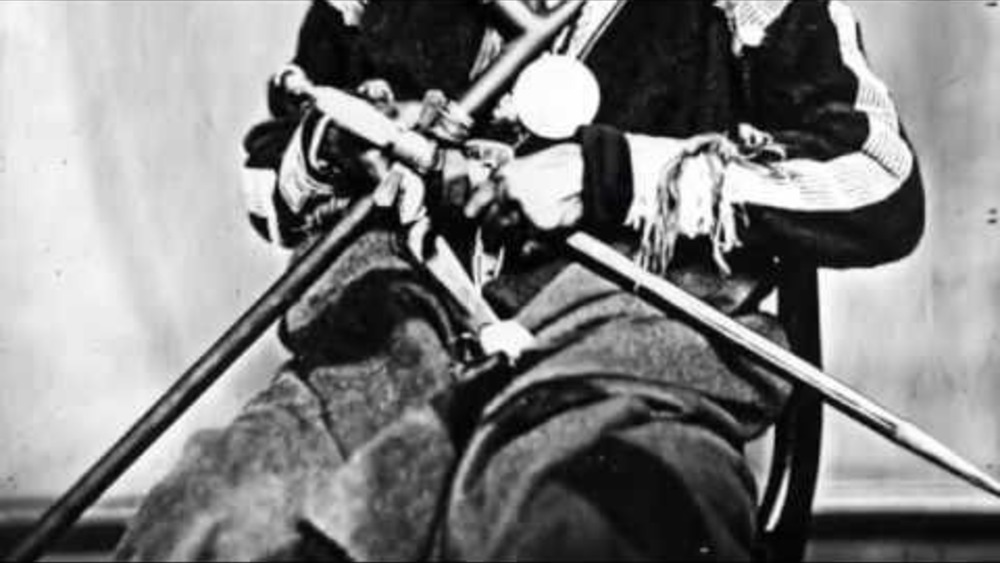
Indoodem: Who is a Red Lake Ojibwe, the Making of the Red Lake Constitution
Produced by the Red Lake Constitution Reform Committee, "Indoodem" provides Red Lake Nation citizens and others with information on clan systems and enrollment in the Red Lake Nation. The film documents the origins of blood quantum and traditional ways of knowing who was a part of the community.…
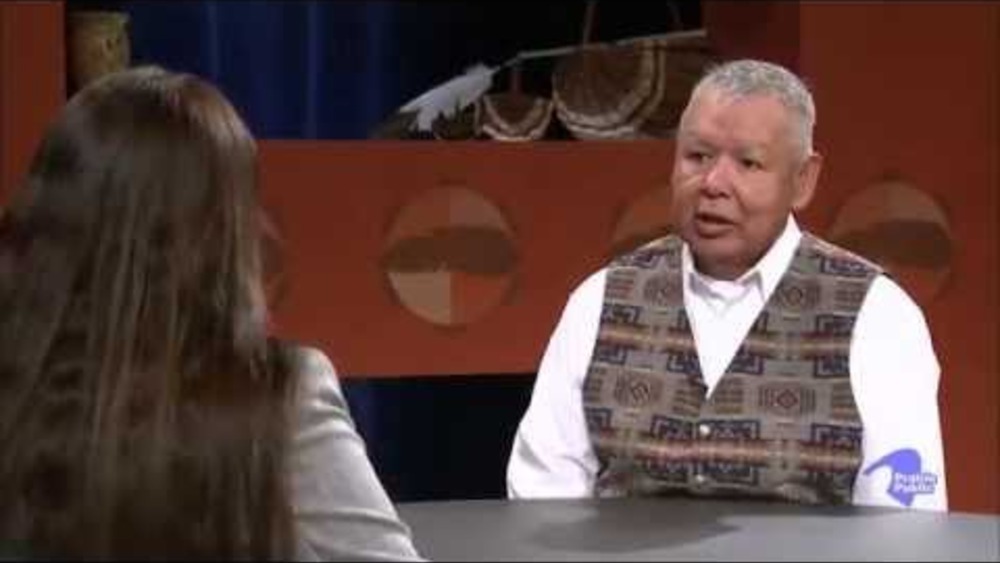
Indian Pride: Episode 112: Tribal Government Structure
This episode of the "Indian Pride" television series, aired in 2007, chronicles the governance structures of several Native nations in an effort to show the diversity of governance systems across Indian Country. It also features an interview with then-chairman Harold "Gus" Frank of the…
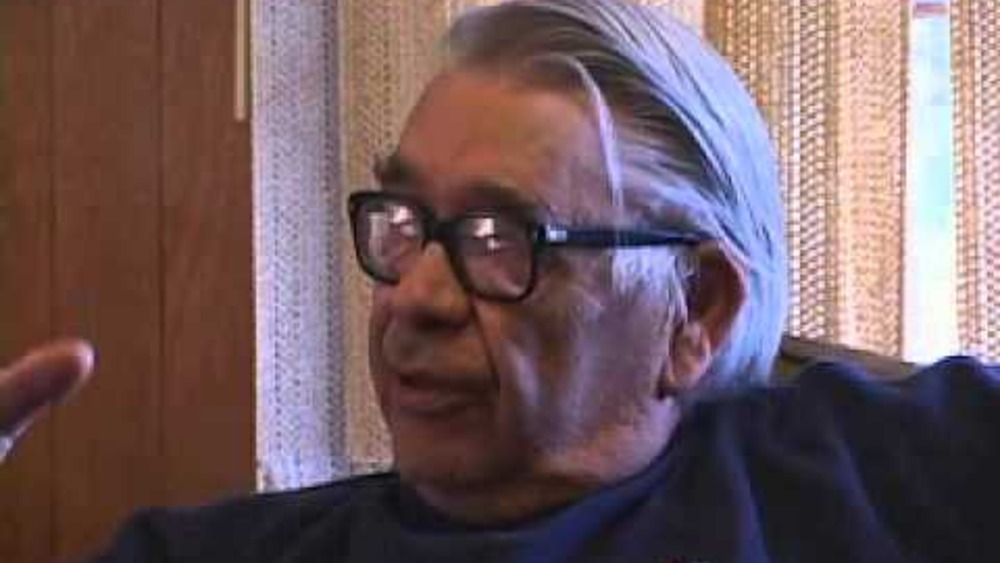
Vine Deloria's Last Video Interview
American Indian author, theologian, historian, and activist Vine Deloria, Jr. (1933-2005) talks with documentary film producer Grant Crowell about traditional Indigenous governance systems and criteria for citizenship, the impact of colonial policies on tribal citizenship (specifically the effects…
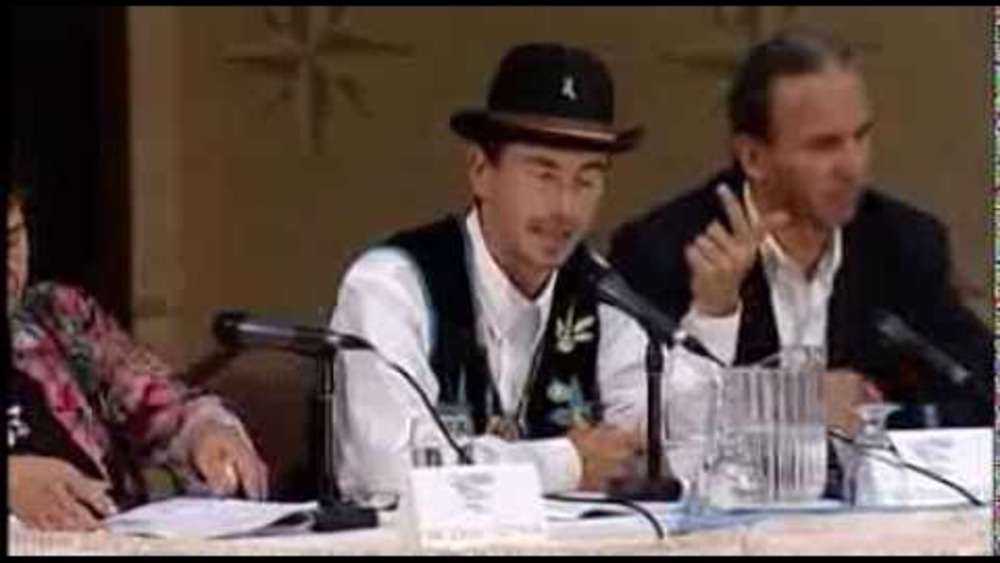
Truth To Tell: Community Connections - White Earth Constitutional Forum Part I
In collaboration with production partner KKWE/Niijii Radio, TruthToTell and CivicMedia/Minnesota traveled west on August 14, 2013, to the White Earth Reservation to air/televise the seventh in our series of LIVE Community Connections forums on critical Minnesota issues. Convened at White Earth's…
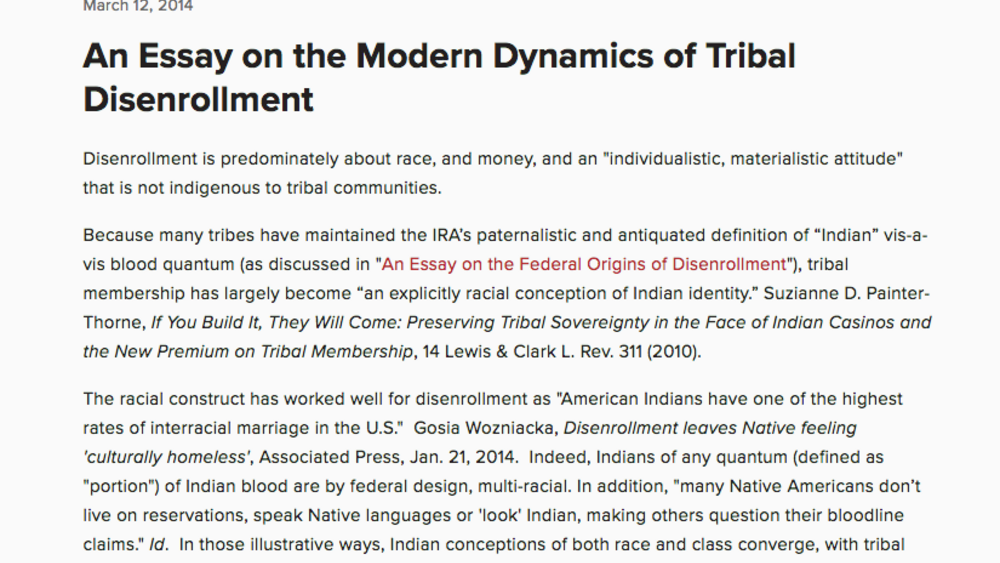
An Essay on the Modern Dynamics of Tribal Disenrollment
Disenrollment is predominately about race, and money, and an “individualistic, materialistic attitude” that is not indigenous to tribal communities. Because many tribes have maintained the IRA’s paternalistic and antiquated definition of “Indian” vis-a-vis blood quantum (as discussed in “An Essay…
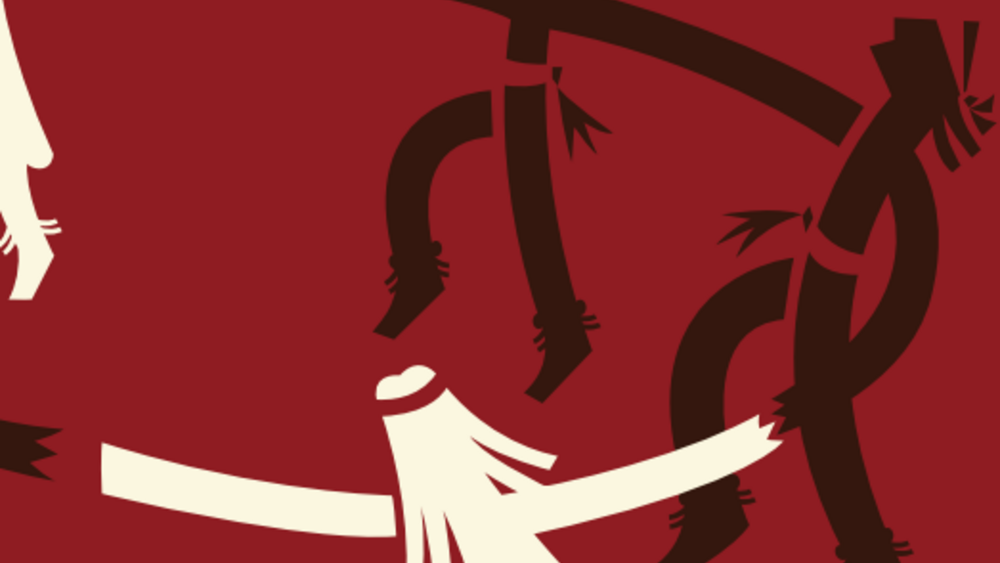
Redefining Tigua Citizenship
The materials in this informational guide are designed to provide you with important background information ”such as Tigua history, tribal population profiles, and fiscal impacts” related to upcoming membership criteria changes. Project Tiwahu is an Ysleta del Sur Pueblo-wide initiative to reclaim…
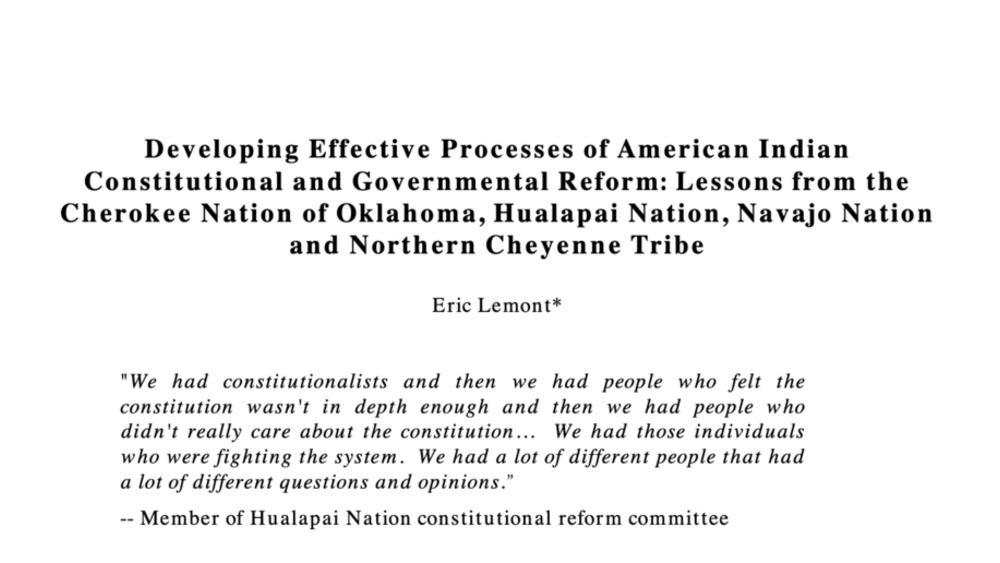
Developing Effective Processes of American Indian Constitutional and Governmental Reform: Lessons from the Cherokee Nation of Oklahoma, Hualapai Nation, Navajo Nation and Northern Cheyenne Tribe
Over the past several decades, numerous American Indian nations have been revising their constitutions to create more legitimate, effective and culturally-appropriate governments. However, successful processes of reform have been hindered by a variety of universal challenges, including political…
Pagination
- First page
- …
- 2
- 3
- 4
- …
- Last page
